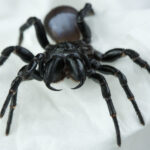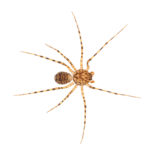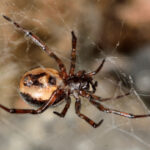Spider Prevention: 25 Ways to Prevent Them
- Spider Prevention: 25 Ways to Prevent Them
- Best Methods to Prevent and Eliminate Spiders
- Seal Cracks and Gaps:
- Use Sticky Traps:
- Reduce Outdoor Lighting:
- Maintain Dry Environments:
- Use Diatomaceous Earth:
- Regularly Clean Outdoors:
- Create a Salt Barrier:
- Regularly Take Out Your Garbage:
- Use Lavender:
- Clean every nook and cranny:
- Eliminate food sources:
- Utilise Cinnamon:
- Apply Peppermint Oil or Other Essential Oils:
- Vinegar:
- Incorporate Garlic:
- Remember, insects are beneficial to spiders:
- Use spider catchers, jars, and glass:
- Adopt a cat:
- Grow plants that repel insects:
- Plant a eucalyptus tree in your garden:
- Use Citrus Scents:
- Create a DIY Cleaning Spray:
- Play music loudly:
- Store chestnuts away:
- Use cedar wood:
- Do Natural Spider Repellents Really Work?
- Which Natural Spider Repellent Is Most Effective?
- How to Identify and Eliminate Poisonous Spiders
- Frequently Asked Questions
- Best Methods to Prevent and Eliminate Spiders
Spider Prevention: 25 Ways to Prevent Them
Spiders are a common household concern for many, especially during certain times of the year when they seek shelter indoors. While they sometimes can be beneficial in controlling other pests,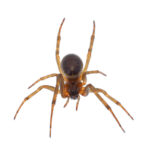
In this guide, you’ll find 25 natural and practical ways to prevent and eliminate spiders from your home, from sealing cracks and reducing outdoor lighting to using essential oils and sticky traps. Whether you’re looking for long-term prevention or quick solutions, these tips will help create a spider-free environment, keeping your home both comfortable and pest-free.
Best Methods to Prevent and Eliminate Spiders
Seal Cracks and Gaps:
Seal all cracks and gaps in walls, windows, and doors to prevent spiders from entering your home.
Use Sticky Traps:
Place sticky traps around the home to catch spiders and monitor their presence.
Reduce Outdoor Lighting:
Since many spiders are attracted to insects drawn to lights, yellow or bug-repelling outdoor lights can reduce spider attraction.
Maintain Dry Environments:
Spiders are often drawn to damp areas. Use dehumidifiers or fans to keep indoor spaces dry.
Use Diatomaceous Earth:
Sprinkle food-grade diatomaceous earth around entry points and in corners. It dehydrates and kills spiders and their prey.
- How to Apply: Purchase food-grade diatomaceous earth from a gardening or home improvement store. Use a hand duster or sprinkle a thin layer in areas where spiders are likely to enter, such as doorways, windowsills, and baseboards.
Regularly Clean Outdoors:
Keep outdoor areas like porches and garages clean and free of debris where spiders might create webs.
Create a Salt Barrier:
Some people find that sprinkling salt around entry points deters spiders from crossing them.
- How to Make: Use regular table salt or rock salt. Sprinkle a thin line of salt around doorways, windows, and other entry points where spiders might enter. You can also mix salt in water and spray it around these areas for a liquid barrier.
Regularly Take Out Your Garbage:
Keeping your garbage inside for extended periods can attract a variety of pests, including spiders, as these creatures are often drawn to the odours and opportunities for feeding that rubbish presents.
Use Lavender:
Lavender is a natural repellent for spiders. Place lavender sachets or use lavender oil in areas where spiders are a problem.
- How to Make: Fill small fabric bags with dried lavender flowers to create lavender sachets. Place them in areas like closets, windowsills, or corners. Alternatively, mix 10-15 drops of lavender essential oil with water in a spray bottle and mist areas where spiders are likely to appear.
Clean every nook and cranny:

Eliminate food sources:
Pests are drawn to food remnants. Store food in airtight containers, clean up spills immediately, and regularly empty the trash to remove any potential food sources that could attract insects.
Utilise Cinnamon:
This spice is much more than just a cooking ingredient. Its strong scent can deter insects like ants and cockroaches. Sprinkle ground cinnamon in areas where you’ve seen pests, and watch them steer clear.
- How to Use: Purchase ground cinnamon or cinnamon sticks. For larger areas, place small bowls filled with cinnamon or use sachets. You create a spray by mixing 1 tablespoon of cinnamon powder with a cup of water, then misting around windows and doorways.
Apply Peppermint Oil or Other Essential Oils:
Essential oils like peppermint are natural insect repellents. Mix a few drops with water and spray around your home to create a refreshing scent while keeping pests at bay.
- How to Make: Mix 10-15 drops of peppermint oil with water in a spray bottle. Shake well and spray along baseboards, windows, and doors. Soak cotton balls in the mixture and place them in pest-prone areas.
Vinegar:
Vinegar is an organic cleaning agent that can help eliminate pests and their odours. Wipe down surfaces with vinegar to deter insects and leave your home smelling fresh.
- How to Use: Mix equal parts white vinegar and water in a spray bottle. Use it to wipe down countertops, floors, and other surfaces. For stronger odour control, spray undiluted vinegar in corners, windowsills, and areas where pests are common.
Incorporate Garlic:
Garlic isn’t just for cooking; it’s also a natural insect repellent. You can create a garlic spray by blending garlic with water, straining it, and using it in areas where pests might enter your home.
- How to Make: Blend two cloves of garlic with 2 cups of water, strain the mixture, and pour the liquid into a spray bottle. Apply around entry points like windows, doors, and garden beds to keep insects away.
Remember, insects are beneficial to spiders:
To effectively prevent spiders, managing and eliminating other insects that serve as their food source is crucial. This involves maintaining a clean and hygienic home environment to reduce the presence of flies, moths, and other small insects that spiders prey on.
Use spider catchers, jars, and glass:
Instead of killing spiders, consider using a spider catcher or a simple jar to safely capture and release them outside. This humane approach allows you to maintain the ecological balance while keeping your home spider-free.
Adopt a cat:
Cats are natural hunters and can help keep pest populations in check. Bringing a cat into your home can provide companionship while also serving as a pest control ally.
Grow plants that repel insects:
Certain plants, like marigolds and lavender, can naturally repel pests. Incorporating these into your garden or home can create a more pest-resistant environment.
Plant a eucalyptus tree in your garden:
Eucalyptus leaves contain oils that many insects find unappealing. Planting an eucalyptus tree can help deter pests while adding beauty to your landscape.
Use Citrus Scents:
Many insects dislike citrus scents. To keep pests away, use citrus-scented cleaners or create homemade sprays with lemon juice or orange peels.
- How to Make: You can create a simple citrus spray by boiling lemon or orange peels in water for about 10 minutes, then straining the mixture into a spray bottle. Add a few drops of citrus essential oil for extra potency. Spray around windows, doorways, and other areas where insects tend to gather.
Create a DIY Cleaning Spray:
Combine vinegar, water, and essential oils to create a powerful spray that cleans surfaces and deters insects.
- How to Make: Mix 1 cup of vinegar, 1 cup of water, and 10-15 drops of essential oils (such as lavender, peppermint, or eucalyptus) in a spray bottle. Shake well and use it to clean countertops, windowsills, and floors, leaving a fresh scent while keeping insects at bay.
Play music loudly:
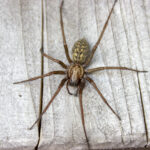
Store chestnuts away:
Chestnuts contain a natural substance that repels spiders. Storing them in corners or near entry points can help keep these eight-legged creatures at bay.
Use cedar wood:
The aroma of cedar wood is known to deter insects. Using cedar wood in your home or garden as furniture or mulch can create a less appealing environment for pests.
Do Natural Spider Repellents Really Work?
Natural spider repellents can be effective, but their efficacy varies depending on the specific product and application method. Scientific studies have shown mixed results, with some natural compounds demonstrating promising repellent properties. For example, research indicates that peppermint oil and chestnuts may deter certain spider species, while lemon oil appears to be ineffective.
The effectiveness of natural repellents often depends on consistent and proper application. Essential oils like peppermint, tea tree, and lavender are commonly used, but they require frequent reapplication to maintain their potency. Other natural methods, such as using spider-repelling plants or maintaining a clean, clutter-free environment, can also help reduce spider presence.
While natural repellents may offer a safer alternative to chemical pesticides, they may not provide long-term or complete protection against spiders. Combining natural methods with professional pest control services as part of an Integrated Pest Management (IPM) approach may yield the best results for persistent infestations.
Which Natural Spider Repellent Is Most Effective?
Which Natural Spider Repellent Is Most Effective? Research suggests that certain natural spider repellents can be effective, though results may vary depending on the spider species and application method. Among the most promising natural repellents are:
Peppermint Oil
Peppermint oil has emerged as one of the most effective natural spider deterrents. Its strong scent is unpleasant to spiders, making it a popular choice for homeowners seeking eco-friendly solutions. To use peppermint oil:
- Mix 10-15 drops with water in a spray bottle.
- Apply around entry points, windows, and areas of spider activity.
- Reapply regularly to maintain effectiveness.
Chestnuts
Surprisingly, chestnuts have shown promise in repelling certain spider species. While the exact mechanism is not fully understood, volatiles released by chestnuts appear to deter spider settlement. Place whole chestnuts in areas prone to spider activity.
Other Essential Oils
While not as well-studied as peppermint, other essential oils may also help repel spiders:
- Tea tree oil
- Lavender oil
- Eucalyptus oil
These can be used similarly to peppermint oil, diluted and sprayed in key areas.
Effectiveness and Limitations
It’s important to note that while these natural repellents can be effective, they are not foolproof solutions. Their efficacy can vary based on:
- Spider species (some are more sensitive than others)
- Consistency of application
- Environmental factors
Combining natural methods with professional pest control as part of an Integrated Pest Management (IPM) approach may yield the best results for persistent infestations. Remember, while repelling spiders, addressing underlying factors attracting them, such as other insect prey and cluttered environments that provide hiding spots, is crucial.
How to Identify and Eliminate Poisonous Spiders
Identifying poisonous spiders is crucial for home safety. Key venomous species include the black widow, recognisable by its black body and red hourglass marking, and the brown recluse, known for its violin-shaped marking. Other species of spiders that can bite people in the UK include:
- Garden Spider or Cross Orbweaver (Araneus diadematus)
- Noble False Widow Spider (Steatoda nobilis)
- Common Candy-Striped Spider (Enoplognatha ovata)
- Goldenrod Crab Spider (Misumena vatia)
- Zebra Jumping Spider (Salticus scenicus)
- Cucumber Green Spider (Araniella cucurbitina)
- Cellar Spider (also known as Daddy Long Legs)
- Giant House Spider
- European Garden Spider
- European Cave Spider
- Cardinal Spider
- Orb-Weaver Spider
- Cupboard Spider
- Mouse Spider
- Wasp Spider
- Raft Spider
- Common False Widow Spider (Steatoda bipunctata)
- Spitting Spider (Scytodidae)
- Yellow Sac Spider
- Lace Web Spider
- Money Spider
To eliminate these dangerous arachnids, start by sealing entry points and removing clutter that provides hiding spots. Use spider traps in dark, undisturbed areas, and consider applying insecticide sprays around doorways and windows. Professional pest control services may be necessary for persistent infestations. Remember, while most spiders are harmless, it’s essential to exercise caution and seek medical attention if bitten by a suspected venomous spider.
Frequently Asked Questions
How often should I clean to prevent spiders?
- Vacuum and dust regularly, at least once a week, paying special attention to corners, baseboards, and under furniture.
Does removing other insects help with spider control?
- Yes, reducing the presence of other insects that spiders feed on can help discourage spiders from settling in your home.
Are all spiders harmful?
- No, most spiders are harmless and beneficial as they help control other pest populations.
Try Youngs Pest Control For all Your insect control needs.
If you’re tired of trying natural remedies without lasting success, it’s time to take the next step. At Youngs Pest Control, we specialise in effective spider control that eliminates spiders and prevents them from coming back. Our professional team uses safe, targeted treatments to ensure your home remains spider-free for good.
Don’t let spiders take over your home—get expert help today!
Contact us now at 0161 776 9832 or email us at [email protected] to schedule your professional pest control service. Visit our website for more information!
If you’re concerned about Pests like Rodents or Insects, Check out the links below:

